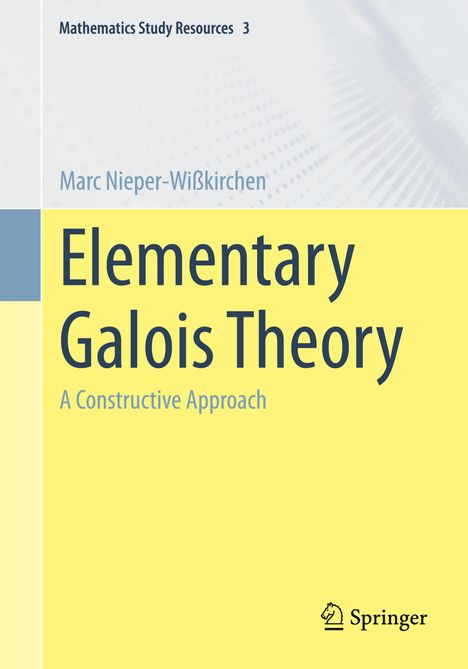Marc Nieper-Wißkirchen: Elementary Galois Theory, Kartoniert / Broschiert
Elementary Galois Theory
- A Constructive Approach
(soweit verfügbar beim Lieferanten)
- Verlag:
- Springer Berlin Heidelberg, 11/2024
- Einband:
- Kartoniert / Broschiert, Paperback
- Sprache:
- Englisch
- ISBN-13:
- 9783662666425
- Artikelnummer:
- 12106534
- Umfang:
- 320 Seiten
- Gewicht:
- 539 g
- Maße:
- 240 x 168 mm
- Stärke:
- 18 mm
- Erscheinungstermin:
- 14.11.2024
- Hinweis
-
Achtung: Artikel ist nicht in deutscher Sprache!
Klappentext
Why is the squaring of the circle, why is the division of angles with compass and ruler impossible? Why are there general solution formulas for polynomial equations of degree 2, 3 and 4, but not for degree 5 or higher?
This textbook deals with such classical questions in an elementary way in the context of Galois theory. It thus provides a classical introduction and at the same time deals with applications. The point of view of a constructive mathematician is consistently adopted: To prove the existence of a mathematical object, an algorithmic construction of that object is always given. Some statements are therefore formulated somewhat more cautiously than is classically customary; some proofs are more elaborately conducted, but are clearer and more comprehensible. Abstract theories and definitions are derived from concrete problems and solutions and can thus be better understood and appreciated.
The material in this volume can be covered in a one-semester lecture on algebra right at the beginning of mathematics studies and is equally suitable for first-year students at the Bachelor's level and for teachers.
The central statements are already summarised and concisely presented within the text, so the reader is encouraged to pause and reflect and can repeat content in a targeted manner. In addition, there is a short summary at the end of each chapter, with which the essential arguments can be comprehended step by step, as well as numerous exercises with an increasing degree of difficulty.
The translation was done with the help of artificial intelligence. A subsequent human revision was done primarily in terms of content.


